AI tools in hospitality are revolutionizing the way hotels operate and serve guests. From AI-powered robots acting as concierges to intelligent systems automating backend operations, hotels of all sizes are embracing these technologies to deliver more consistent and personalized guest experiences. Beyond hotels, AI solutions are transforming the broader hospitality business, including restaurants, travel companies, and other service providers.
This article examines how leading hotels utilize AI technology and other innovative solutions to enhance customer satisfaction and optimize operations.
How is AI transforming the hospitality industry?
Since 2014, several hotels have introduced robot concierges to enhance guest service. Leading the trend is Connie, Hilton’s AI-powered concierge built on IBM’s Watson supercomputer. Other notable examples include Aloft Hotels’ ALO, Yotel Hotels’ Yobot, and Hotel EMC2’s Cleo and Leo.
While the operational impact of these robots is still being evaluated, they’ve certainly generated significant marketing buzz. More importantly, AI is transforming the hospitality industry far beyond concierges; AI is revolutionizing hospitality operations by streamlining daily management processes, optimizing staff workflows, and improving data management. Hotels, as well as other hospitality firms and hospitality industries, are now using AI tools for reputation management, revenue optimization, guest sentiment analysis, personalized marketing, and automated customer support. These intelligent systems are helping properties of all sizes streamline operations, reduce costs, and deliver more personalized, data-driven guest experiences.
Across the travel and hospitality industries, AI tools are being adopted to drive operational efficiency and improve service quality. Ultimately, AI adoption enables organizations to enhance guest experiences as a key benefit.
How many hotels are using AI?
The International Data Collection has predicted that 60% of hotels and 70% of travel agencies will be using AI technology by 2026, completely changing the landscape of the hospitality sector. For others, this might be far-fetched, but a Gartner survey supported this prediction, suggesting that the world's use of AI had grown by a whopping 270%.
How is AI used in hotels?
Here are some AI in hospitality use cases:
- Online reputation management – AI analyzes guest reviews and generates personalized responses to improve hotel ratings.
- Online customer service – AI chatbots provide 24/7 support, answer inquiries, and handle bookings instantly.
- Guest personalization – AI tailors recommendations, amenities, and offers based on guest preferences and behavior.
- Revenue management – AI optimizes room pricing and promotions using demand forecasting and market trends.
- Data analysis – AI processes large datasets to identify trends, improve operations, and enhance guest experiences.
The truth is, most guests can’t see the spread of AI technology in the hospitality industry, as most of its applications lie in the backend hotel operations, automating routine tasks and repetitive tasks to improve efficiency. AI tools not only streamline automation and data science but also support hotel staff by freeing them from repetitive tasks, allowing them to focus on higher-value guest interactions.
1. Online reputation management
It may be surprising that even the most prominent hotel names still require assistance in maintaining an excellent online reputation. For this reason, more hotels are relying on AI for online reputation management. In our recent article about online review statistics, recent surveys suggest that 81% of travelers read reviews before booking a hotel, making review management operations the most vital area of online reputation management.
Click here to learn more about how AI tools are used in reputation management.
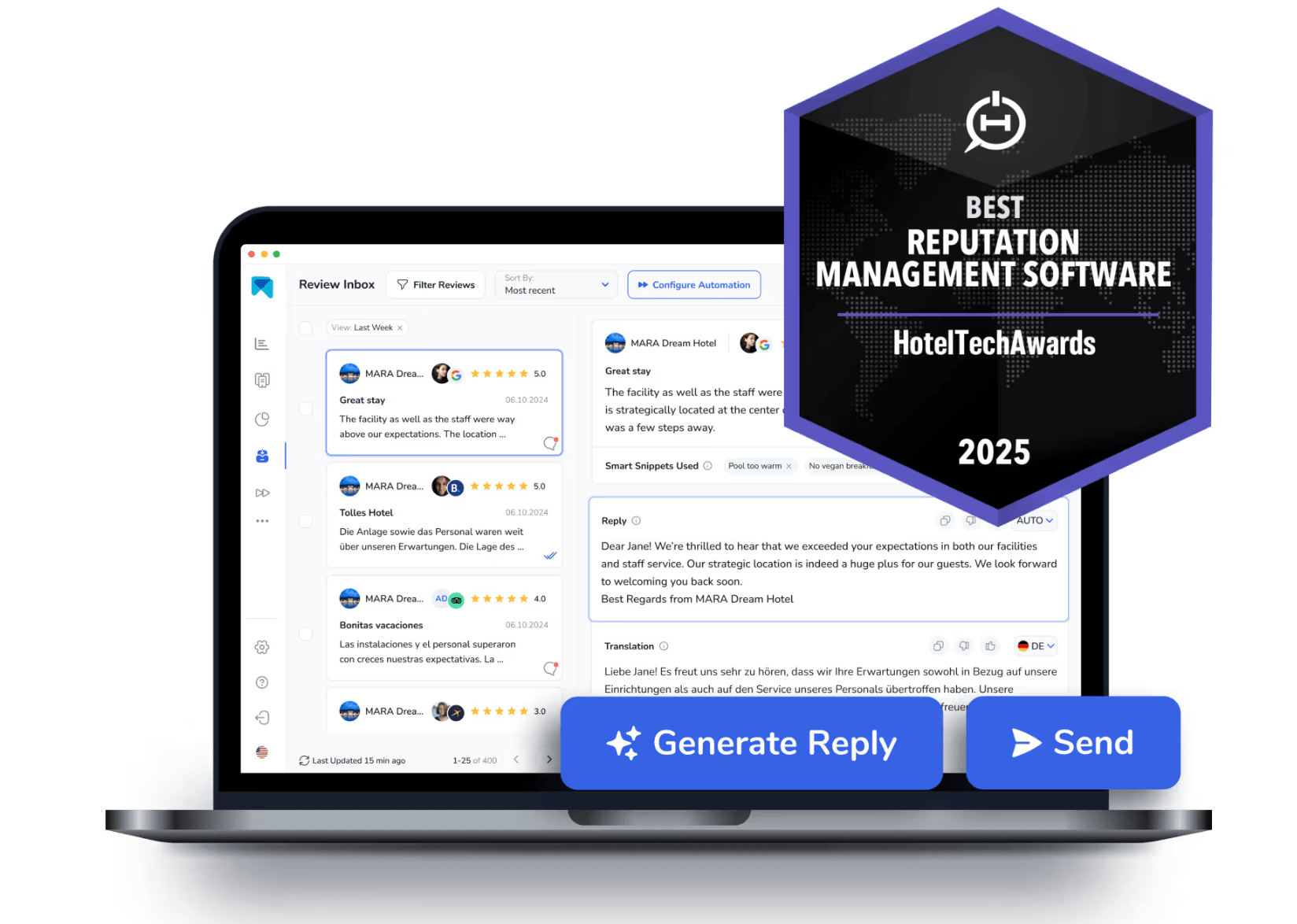
{{blog-cta="/features/product-updates"}}
2. Online customer service
This includes using chatbots, automated social media messaging, and push notifications with minimal dependence on virtual assistance. The mentioned digital technologies enable hotel owners to respond to customer inquiries 24 hours a day, seven days a week, which is nearly impossible with human-to-human interaction.
To learn how Generative AI tools are changing the hotel industry, read our article: Get the Most Out of ChatGPT: How Hotels Can Leverage the Technology
3. Guest personalization
According to a recent survey by Hotel News Now, the use of artificial intelligence and machine learning for guest personalization contributed to 21.8% of guest satisfaction. This includes creating customized travel guides, in-house guest experiences, and food curations, all according to their respective customers' data.
4. Revenue management
According to the same survey mentioned above, hotels’ revenue management is considered the most effective area for utilizing AI and ML, achieving 60% guest satisfaction. Setting smart prices, automated booking operations, market analysis and segmentation, KPI tracking, competitor analysis, and more, all fully automated through machine learning technologies. AI-powered tools also support targeted marketing strategies and leverage real-time data, such as social media trends and user behavior, to optimize pricing and occupancy. This enables hotel owners to deliver great value to their customers and remain competitive in the market.
5. Data analysis
Aside from the areas mentioned above, hotels also use AI for general data analysis. This includes inventory management, customer behavior analysis, demand forecasting, market prediction, and other operational tasks to ensure an excellent guest experience. Additionally, AI-driven predictive maintenance and the optimization of housekeeping schedules, using occupancy data and IoT technology, can further improve efficiency and resource allocation in hotels.
10 AI tools for hospitality every hotelier should know
Here are the top AI tools for hospitality used by hotels in providing an exceptional guest experience:
- MARA - AI review reply generator enables hotels and businesses to respond to any reviews within seconds.
- DialogShift - Chatbot and messaging automation for guest inquiries and direct bookings.
- Mobotix - AI parking technology for hotels and other businesses.
- Allora - Provides data for guest personalization and other customer retention programs.
- Voiceplug - Quick, personalized food ordering experience.
- JoshAI - Voice and touch technology for homes and hotels.
- Hotelier AI - All-in-one guest management, CRM, guest survey, and marketing platform.
- Viqal - Staff-to-guest engagement through predictive AI and autonomous guest data.
- Winnow Vision - Food waste technology for hotels and other business establishments.
- Meteum - Weather forecasting technology based on data from the ground and space.
1. MARA AI Review Reply Generator
MARA AI is an intuitive AI Review Assistant that simplifies online reputation management. It helps hotels respond to guest reviews efficiently and personally, saving time while enhancing guest engagement. With MARA AI, you get advanced, personalized AI for analyzing and replying to reviews, boosting satisfaction, and online ratings.
a. Streamlined Review Inbox
One of the key features of MARA is the Review Inbox. Your review inbox makes responding to reviews as simple as hitting "Generate reply" and clicking "Send". The Review Inbox connects to multiple review sources, including Google, Booking.com, and TripAdvisor, providing a comprehensive view of all your reviews. You can even configure review response automation: Why not allow MARA to automatically respond to simple reviews, like 5-star Google reviews with no text, ensuring you never miss a review? Daily notifications about new reviews keep you updated and in control.

b. Data-driven Review Analytics
To help you understand and analyze the multitude of reviews, the Review Assistant also incorporates Review Analytics. This provides actionable, easy-to-understand insights that are tailored exclusively to your business. With MARA, you can quickly get the gist of all your reviews without needing to read each one. The analysis is so detailed that you can find out about specific issues like "water in the pool is too cold" or "lack of vegan breakfast option”. These insights help optimize guest experience without requiring you to be a data expert.

c. AI-powered Review Automation
After gaining trust in your personal AI Review Assistant, you can even go on autopilot and create automation rules. This way, you can specify which reviews should be replied to directly by the AI, with no additional approval required. With the configuration below, all Google reviews with no text and a star rating of 4 or above are automatically answered.
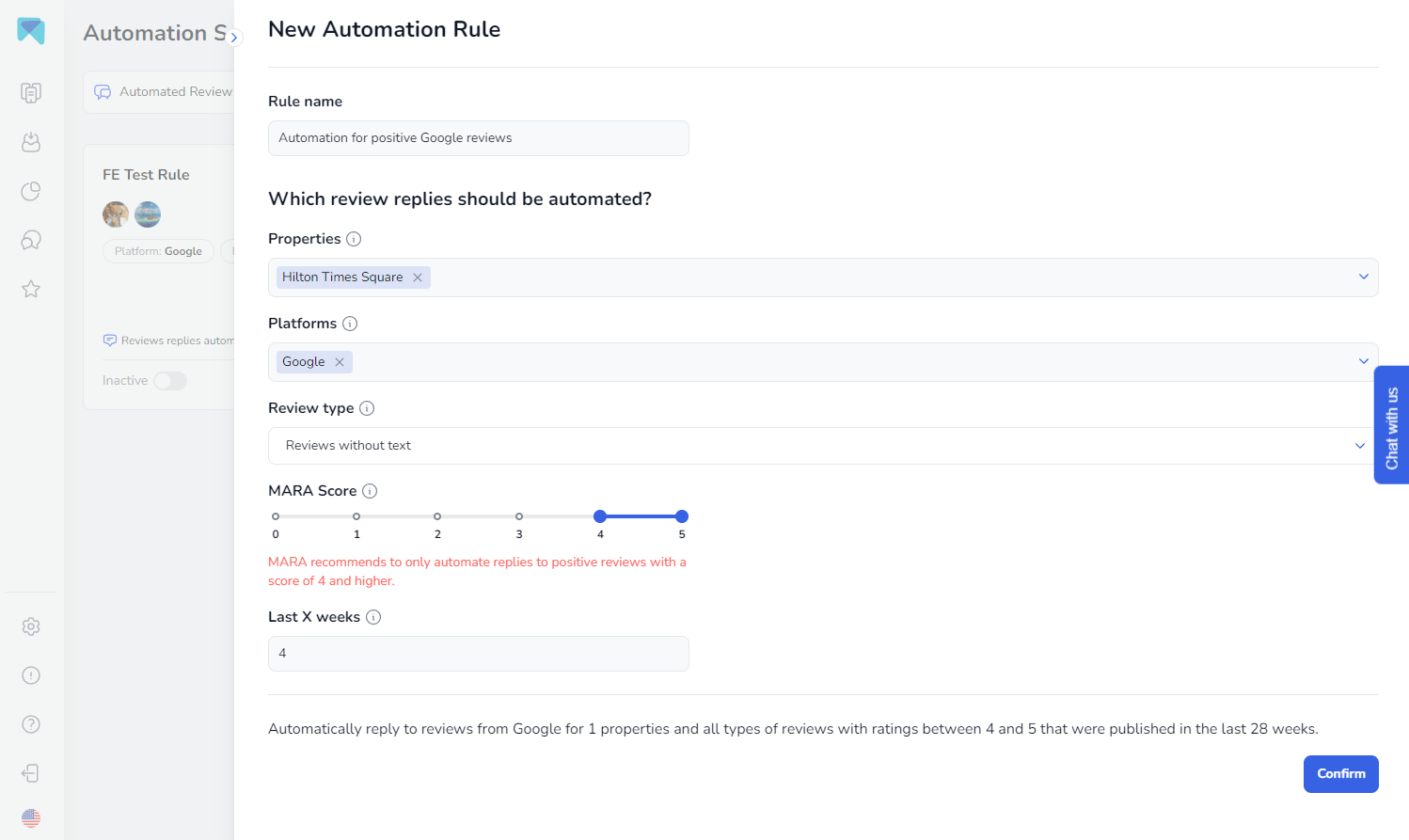
The most personal response AI
MARA's AI isn't just about operational efficiency; it's also about personalization. The Brand Voice feature allows the AI to adapt to your tone, making sure your responses sound authentically you. Plus, with Smart Snippets, you can "teach" the AI how to respond to recurring praises or complaints. Your AI then incorporates this information into its responses, always using different words to provide more personalized and relevant replies.
This review response assistant has quickly become a game-changer for over 2000 customers. Its promising capacity to elevate your overall rating, amplify response rates, glean insights from customer feedback, and economize both time and money is the reason behind its growing popularity.
Managing online reviews need not be an overwhelming task. With the right AI tools, you cannot only streamline the process but also personalize your responses and gain valuable insights from the reviews. Why hesitate to give our AI Review Assistant, MARA, a try? It's completely free for testing, doesn't require a credit card, and can be fully operational in less than five minutes.
{{blog-cta-book-demo="/features/product-updates"}}
2. DialogShift
DialogShift offers a trained AI bot for various communication modes, including website chatbot, Google My Business Messages, WhatsApp for hotels, and more. With over 109 languages, their auto-translation feature ensures that businesses can quickly attend to potential guests from across the globe.
In an interview with Lukas Frankfurth, manager at Parkhotel Emstaler Hohe, DialogShift's chatbot enabled them to answer guests in the fastest and most innovative way possible, reaching a response rate of 97%. Furthermore, inquiries that tend to be more complex are automatically redirected to employees.
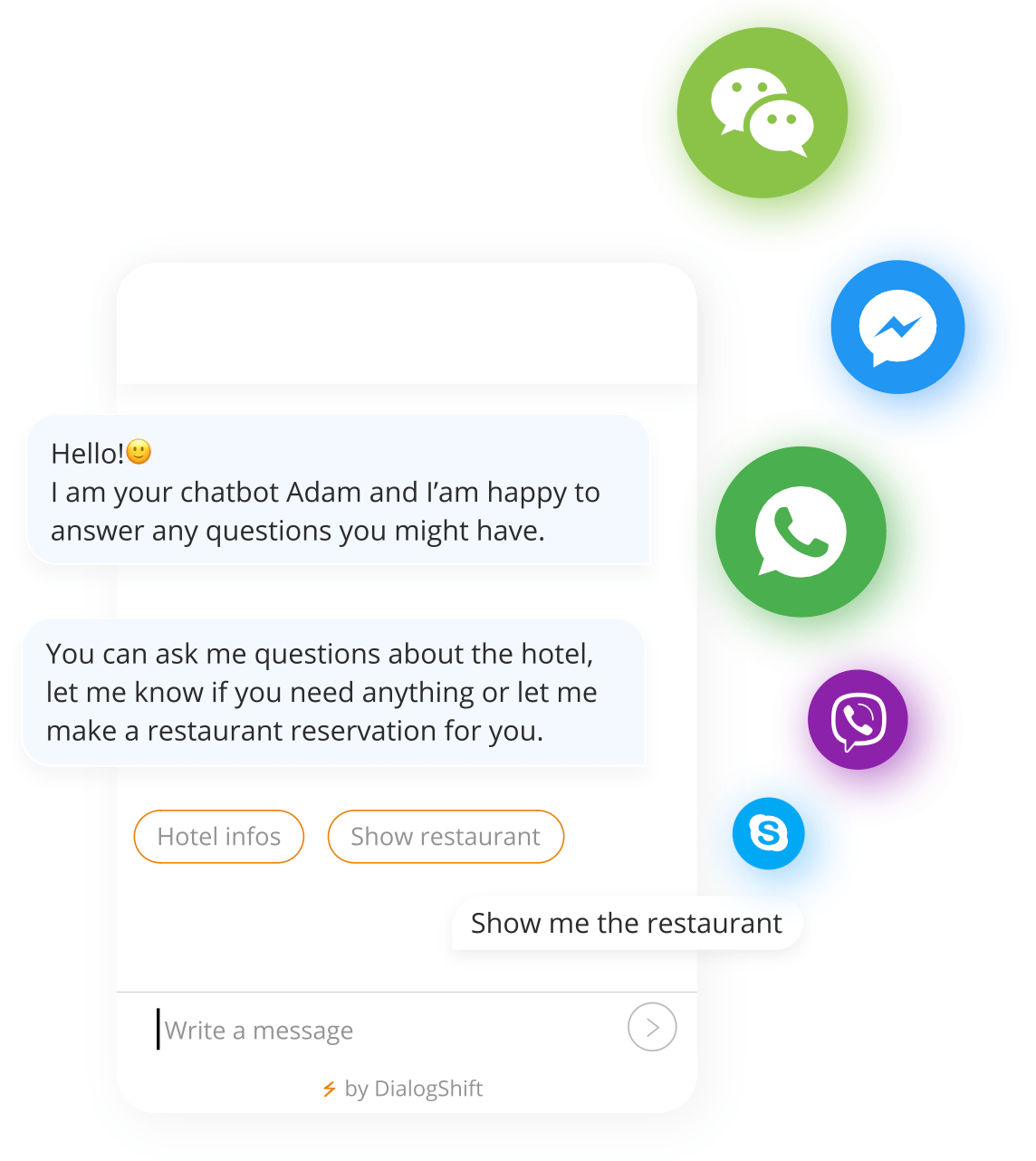
3. Hotelier AI
Hotelier AI is an all-in-one guest management, CRM, data, and marketing platform. Going beyond traditional CRM capabilities, Hotelier AI analyzes guests' historical spending, stay behaviors, and social attributes, providing you with invaluable insights into the characteristics and needs of your core customers.
Prince Hotels and Resorts, a leader in Japanese hospitality, utilizes Hotelier AI. The tech solution manages both international distribution and digital marketing of the said hotel chain. In a recent report, the business reported a 25% increase in conversions due to Hotelier AI, specifically their booking solution. The booking engine is hosted on Prince Hotels & Resorts' localized sites and integrated into their guest loyalty platform and CRS.
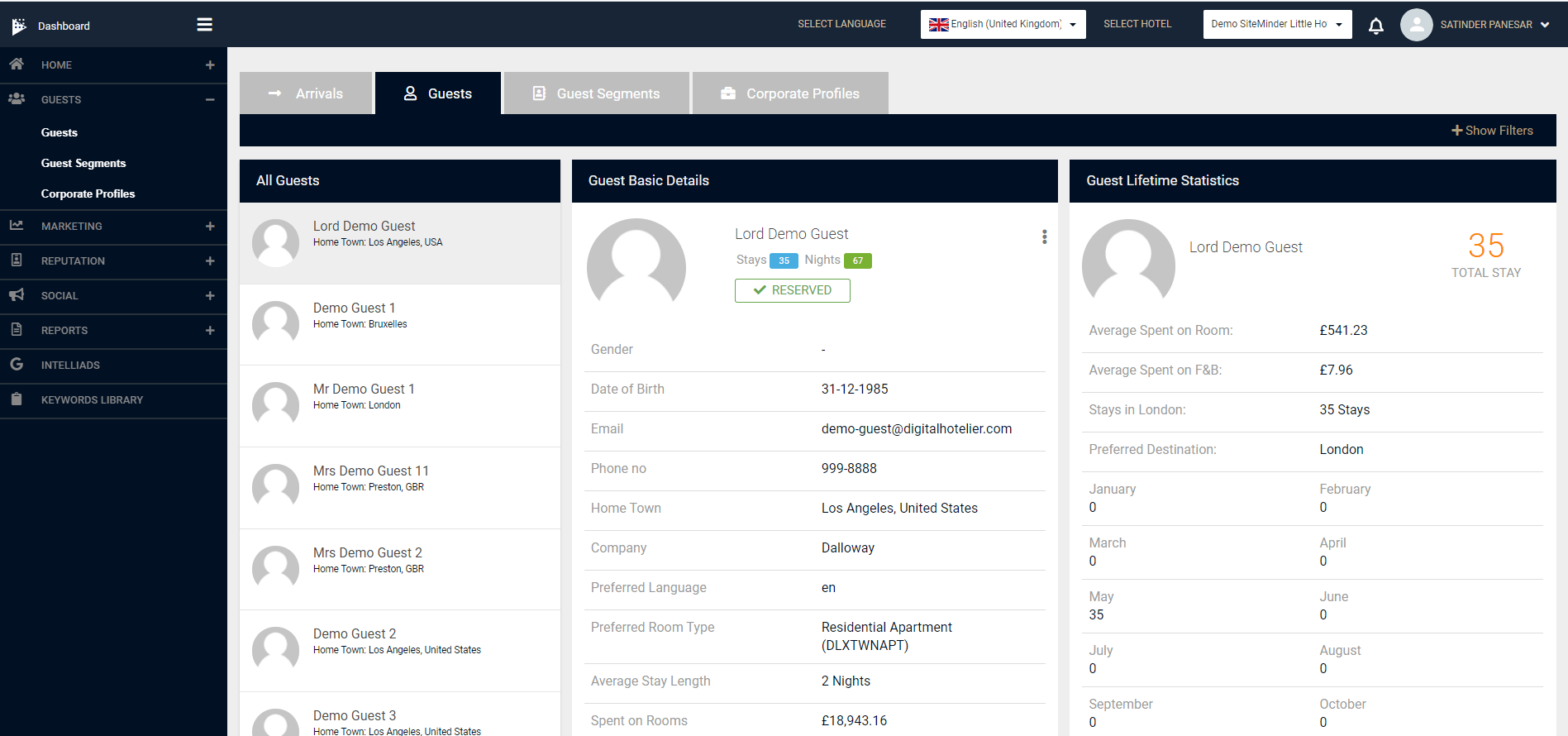
4. Allora
Allora’s flagship offering is an AI-powered booking solution. The company takes pride in its direct-guest acquisition, leveraging 150 algorithms to personalize booking services based on cancellation risk, predictive engagement, and digital optimization.
In a case study released by Avvio, Roomzzz Hotel reduced its dependence on travel agencies from 60% to 10% due to Allora’s AI booking technology. The largest portion of their revenue now comes from direct bookings on their website, allowing them to reinvest their resources in enhancing the guest experience. Additionally, the personalized and responsive service provided by Allora's AI helps drive repeat bookings, further boosting customer retention and loyalty.

5. VoicePlug
VOICEplug AI enables restaurants to provide an innovative and conversational ordering experience while also reducing labor and operational costs. The AI voice solution can be integrated with the hotel's restaurant phone system, call center, and other online ordering systems.
In a blog released by VoicePlug, the food and restaurant industry reports an 80% employee burnout, the highest across industries. Due to the industry's direct connection to hospitality, this trend also affects hotels' productivity and revenue generation. For this reason, an AI ordering system is crucial in streamlining tasks and reducing the hours spent on mundane jobs, enabling employees to increase their operational efficiency and productivity.
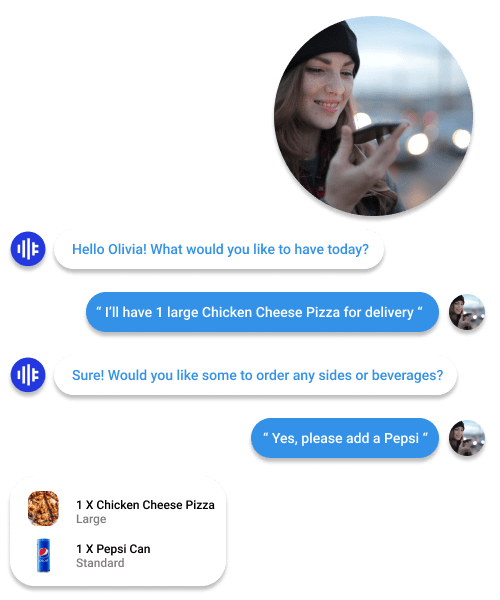
Alt text: voiceplug-ai-ordering-interface
6. Josh AI
Josh AI programming language is built to support smart homes or smart hotels. Through the AI language, guests can control any smart device around their unit: their thermostat, lights, television sets, and other smart items with simple and conversational commands.
IHG Resorts and Hotels is one of the major brands to deploy the Josh AI. Brian McGuinness, SVP for Global Guest Experience Shared Services at IHG, stated that their partnership with Josh.AI aims to push the limits of hospitality by incorporating digital innovation and, ultimately, providing guests with exceptional guest experiences. However, even as technology enhances guest interactions, maintaining the human touch remains essential in hospitality.
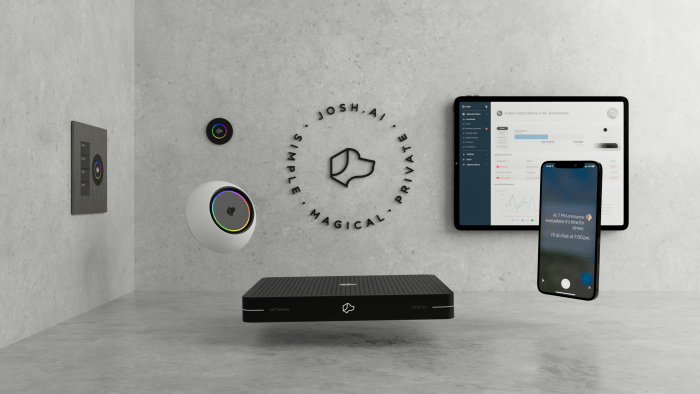
7. Mobotix
The AI parking technology developed by Mobotix assesses whether a parking spot is free or occupied using advanced algorithms that detect and classify vehicles based on deep learning networks. Aside from maximizing hotel parking space, it also aids businesses in achieving seamless parking management to ensure comfort and convenience for their guests.
Torridon Hotel UK was able to decrease the number of cameras used to monitor their parking space through Mobotix, allowing them to cut their operational costs without sacrificing the parking convenience of their guests. By utilizing innovative Mobotix hemispheric technologies, it can use fewer cameras to discreetly cover larger areas, including thermal imaging cameras in the car park, and achieve key entry points with just 20 Mobotix cameras.
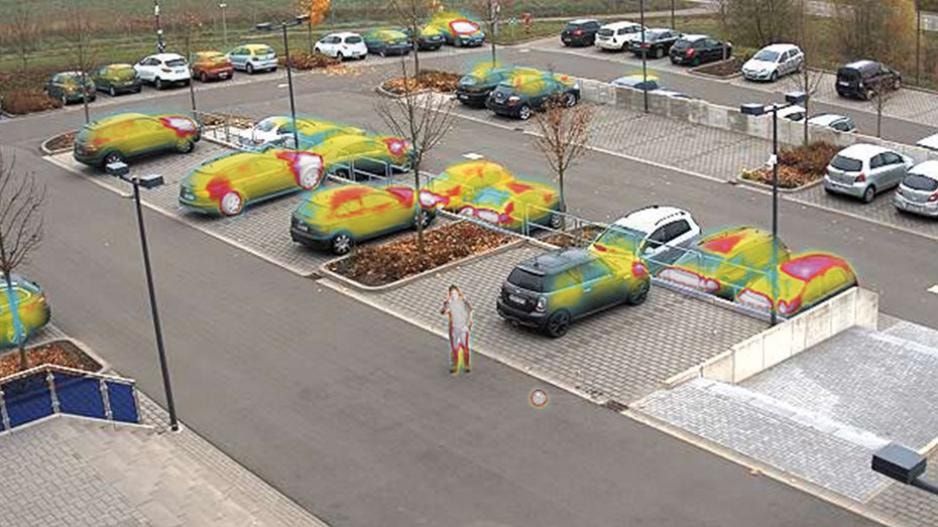
8. Viqal AI
Viqal AI enables hotel managers to create advanced alert workflows triggered by certain customer data tracked through their existing POS and customer movement tracked by smart sensors. These workflows are then linked to staff smartwatches through the Viqal AI staff alert app, enabling them to assist guests in upselling experiences based on their behavior. For example, you can set your front desk’s team alerts to “Connect with customer 123, set 1 hour after guest inactivity is triggered”.
Viqal reports 70% fewer guest complaints and a 20% increase in upselling among their customers. With seamless integration between your management's POS and the staff's smartwatches, guests can expect an exceptional experience.
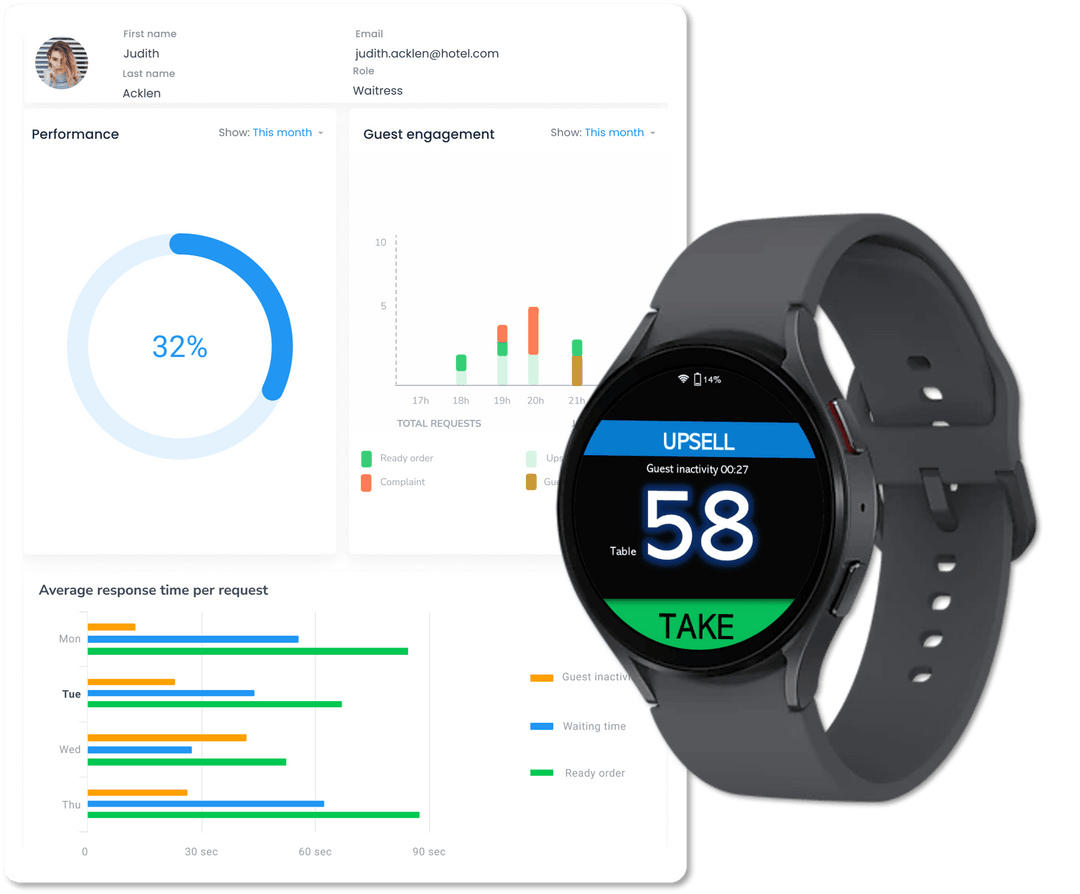
9. Winnow Vision
Winnow Vision allows kitchens to track and analyze food waste automatically. It utilizes AI to help chefs quickly identify waste, reduce costs, and enhance performance. Kitchens using Winnow typically see a 50% reduction in food waste, resulting in savings of 3%-8% on reduced food purchasing costs.
Hilton Dubai Jumeirah Resort saved $65,000 by reducing food waste through Winnow Vision. The 70% reduction in waste helps the company save on operational costs and aids their chefs, as they are no longer wasting time overproducing large quantities of food that won't be consumed.
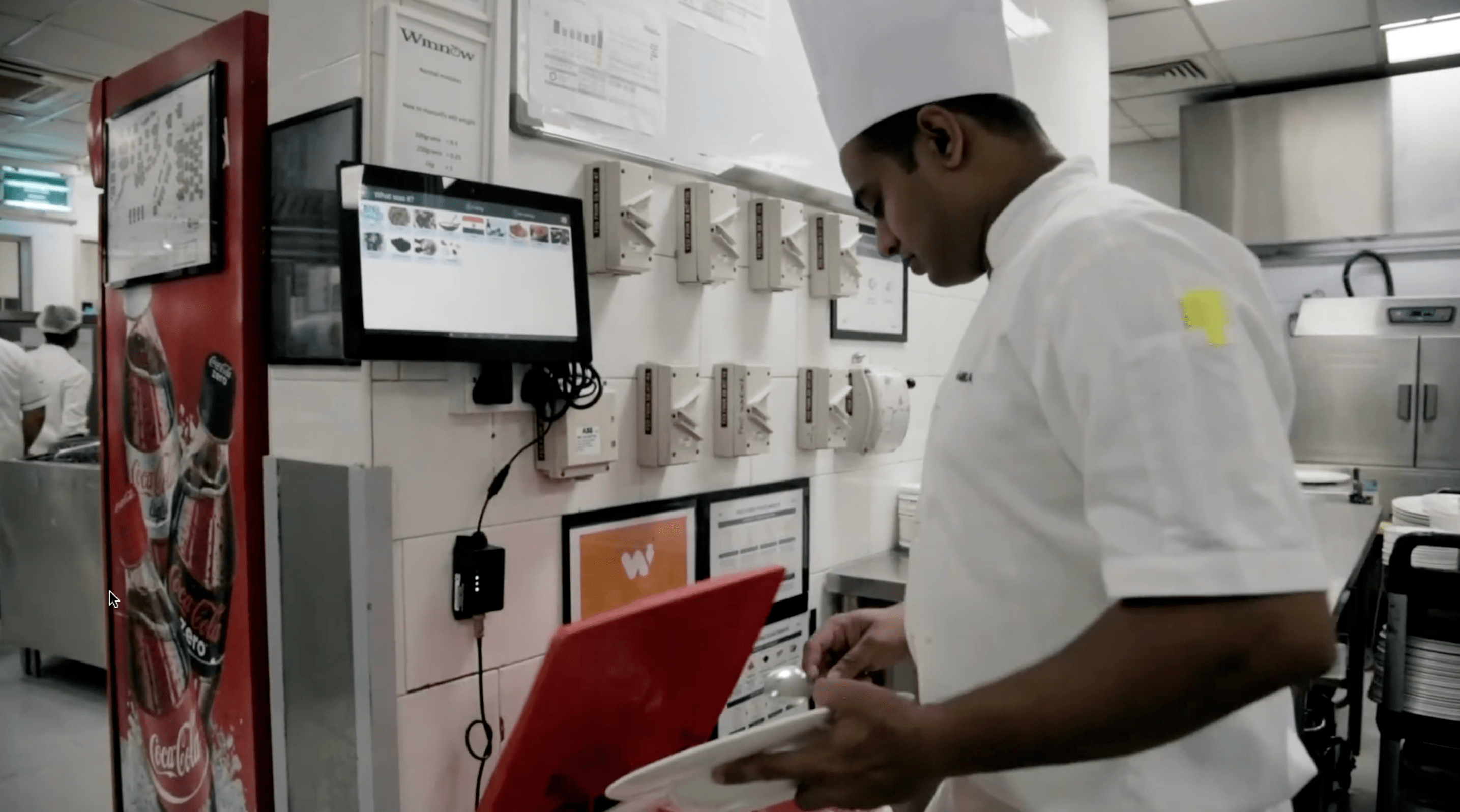
10. Meteum
Meteum provides accurate, hyperlocal weather forecasts, alerts, and interactive weather radar information in real-time by mobilizing thousands of automated weather stations worldwide, alongside data from radars and satellites.
While there are numerous AI and big data solutions for weather analysis, their widespread adoption in the hospitality industry has yet to occur. Fortunately, Red Roof Inn has successfully shown how to do it. During 2014, an estimated 2 to 3% of flights were canceled daily—that's 500 canceled flights and a total of about 90,000 stranded passengers daily. Red Roof Inn began by taking inventory of the available open data and then selecting information that would enable the hotel chain to make relevant offers to stranded airport passengers during a record-setting winter.
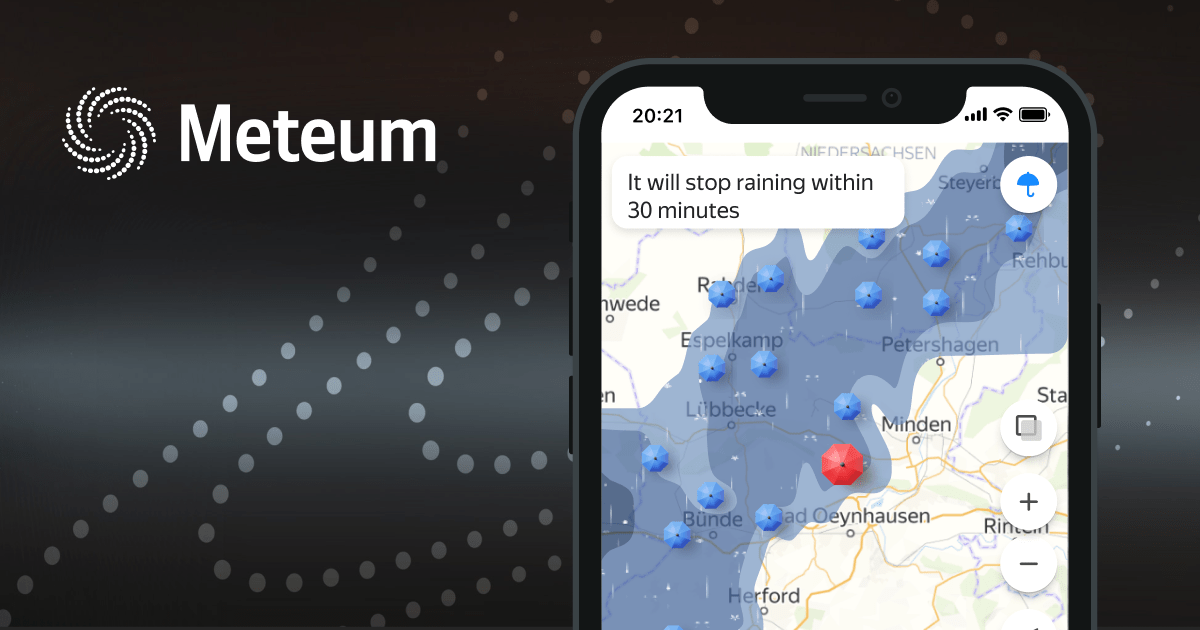
What are the advantages of AI in the hotel industry?
Here are some of the benefits key players are enjoying today due to AI, including enhancing guest experiences and enhancing guest satisfaction:
- Strong online reputation – AI helps manage and respond to guest reviews efficiently.
- Revenue growth – Dynamic pricing and predictive analytics optimize hotel earnings.
- Enhanced customer service – Chatbots and virtual assistants provide faster, personalized support.
- Increased productivity – Automation reduces manual tasks, allowing staff to focus on guest experiences.
Let's break them down:
1. Strong online reputation
These days, online reputation is the soul of marketing, including in the hospitality industry. Our article on online reputation management concludes that 52% of people would never consider booking a hotel without reviews, despite its offers, while 94% of consumers will never conduct any transactions with a business that has a negative online reputation.
In this regard, reputation management AI tools such as AI review reply generators have become a highly beneficial AI technology for hotel businesses, as they attract potential customers. While other hotels are still adamant about using AIs in some areas of their business, more and more hotels are realizing the importance of AI assistance in online reputation management.
2. Revenue growth
Research conducted by Colliers International indicates that hotels utilizing AI experience a 10% revenue increase and reduce costs by more than 15%, enabling brands to achieve significant revenue growth.
There are various ways in which AI boosts revenue, but one of the most significant is its ability to help hotels maximize their occupancy rates, especially during peak seasons.
3. Enhanced customer service
AI and ML enable hotels to exceed expectations in terms of customer service. Chatbots and automated messaging make it a lot easier to engage and interact with customers even before their check-in period. Personalization through data collection enables hoteliers to serve customers based on their individual needs.
Furthermore, review management AI tools allow hotels to reach out to customers through online review platforms even when they are already checked out. Thus, providing holistic customer service.
4. Increased productivity
Contrary to what others perceive, AI doesn't replace people but helps them. In the hospitality industry, AI enables hotels to implement more efficient operational processes, anticipate guest needs, mitigate risks through accurate problem-solving, and predict consumer behavior patterns.
What are the disadvantages of AI in the hotel industry?
Here are some of the downsides of AI in the hotel industry:
- User-dependent effectiveness – AI only works well if hotel staff know how to use it properly.
- High costs – Implementing AI solutions can be expensive, especially without a clear ROI.
- Potential guest dissatisfaction – Misused AI may create impersonal or inaccurate interactions.
- Overreliance on technology – Too much dependence on AI can reduce human touch in hospitality.
- Needs clear purpose – AI must address specific operational gaps, or it may be counterproductive.
How to implement AI tools for hospitality?
Here's how to implement AI tools for hotels:
- Identify key opportunities – Pinpoint areas where AI can enhance guest service, operations, and revenue management.
- Select the right AI tools – Choose solutions like chatbots, virtual assistants, or predictive analytics that align with business goals.
- Train staff effectively – Provide comprehensive training so employees can use AI tools efficiently.
- Set clear success metrics – Define measurable goals, such as improved guest experiences, operational efficiency, and revenue growth.
- Monitor and optimize – Continuously assess AI performance and refine processes to maximize benefits.
Successfully implementing AI in hotels starts with a clear strategy and a focus on areas where AI can make the biggest impact. Hotel managers should begin by identifying key opportunities to enhance guest service, streamline hotel operations, and improve revenue management. Selecting the right AI-powered tools—such as chatbots for guest inquiries, virtual assistants for room service, or predictive analytics platforms for dynamic pricing—ensures that technology aligns with business goals and guest expectations.
Comprehensive staff training is essential to maximize the benefits of AI tools and ensure smooth adoption. By equipping employees with the knowledge and skills to use AI-powered solutions effectively, hotels can maintain high standards of guest satisfaction and operational efficiency. It’s also important to set clear metrics for success, such as improvements in guest experiences, increased operational efficiency, and measurable revenue growth. With a structured approach to AI implementation, hotel managers can unlock the full potential of AI-powered tools and deliver exceptional guest experiences that set their property apart.
How to fully leverage AI tools for hotels?
Here's how hoteliers can fully utilize AI tools for hotels:
- Measure key performance indicators (KPIs) – Track guest satisfaction, operational efficiency, revenue growth, and customer loyalty.
- Monitor AI-specific metrics – Assess chatbot engagement, virtual assistant usage, and predictive analytics accuracy.
- Collect feedback regularly – Gather insights from guests and staff via surveys and direct communication.
- Analyze data for optimization – Identify areas for improvement and opportunities to personalize guest experiences.
- Refine AI strategies continuously – Adapt and optimize AI tools to enhance operations, guest satisfaction, and revenue growth.
What are the best practices for AI adoption in hospitality?
The best practices for AI adoption in hospitality include:
- Be transparent with guests – Clearly explain how AI tools are used and their benefits.
- Invest in staff training – Ensure employees are confident and skilled in using AI.
- Establish governance and ethics – Protect guest data and promote fair, unbiased AI decisions.
- Monitor AI performance continuously – Evaluate results and make data-driven adjustments.
- Focus on guest experience and efficiency – Use AI to enhance service quality and operational productivity.
What is the future of AI in hospitality?
The future of AI in the hospitality industry is bright, with emerging technologies like the following:
- Generative AI & predictive analytics – Anticipate guest needs and personalize every touchpoint.
- Voice-activated assistants – Streamline guest interactions and enhance convenience.
- Virtual and augmented reality – Create immersive, interactive guest experiences.
- IoT integration – Optimize operations and enable smart room personalization.
- Blockchain technology – Enhance security, streamline processes, and enable seamless service.
- New AI applications – Transform hotel management and elevate guest satisfaction.
AI won't beat you. A person using AI will.
No one can deny that the AI solutions and innovations within the hotel industry are nothing less than astounding, mainly because we're still scratching its surface, and we're still bound to discover better technologies sooner rather than later.
Regardless of how the AI industry progresses, there is no reason to fear it. While it provides data to ensure an excellent customer experience, the customer service provided by hoteliers remains unmatched. Instead of seeing AIs as threats, it's time to look at them as an opportunity to become a better and more productive hotelier.
This article is part of our hero content, “The Future of AI in Hospitality: Trends, Tools, and Use Cases".
Frequently Asked Questions:
AI can automate hotel operations, personalize guest experiences, enhance pricing strategies, and improve customer service. From virtual concierges to predictive analytics, AI enables hospitality businesses to operate more efficiently and deliver enhanced guest satisfaction.
AI is applied in hotels for dynamic pricing, guest messaging, automated check-ins, voice assistants, housekeeping optimization, sentiment analysis, and review management. These AI tools help improve operational efficiency and drive revenue growth.
Top AI tools include review management platforms such as MARA, chatbots like HiJiffy, AI-powered CRMs, revenue management systems, and voice assistants for guest rooms.
AI enables hyper-personalized recommendations, faster response times, and seamless services, such as contactless check-in and room customization, thereby enhancing overall guest satisfaction.
Yes. Scalable AI tools, such as cloud-based chatbots and automation platforms, offer affordable solutions that improve operational efficiency without requiring large upfront investments.


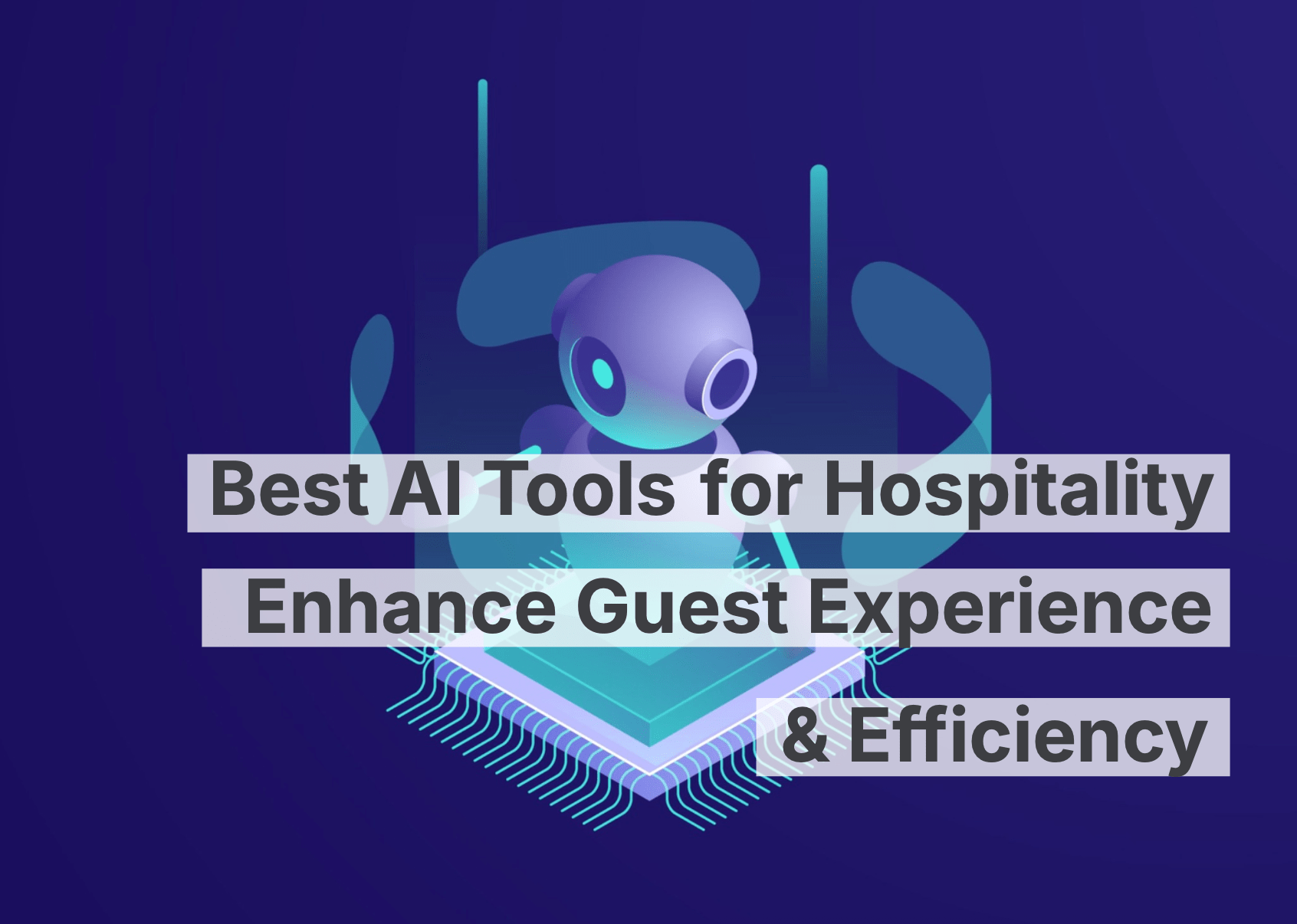
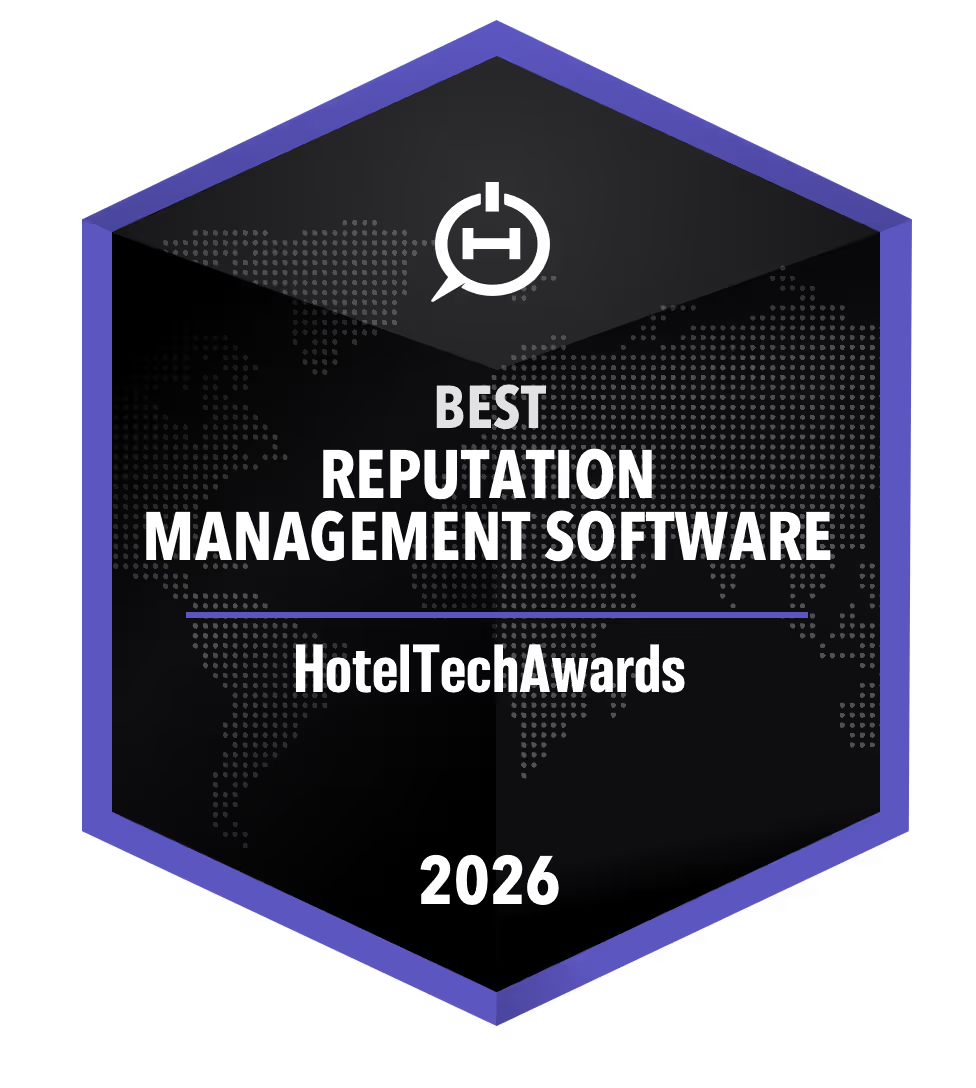



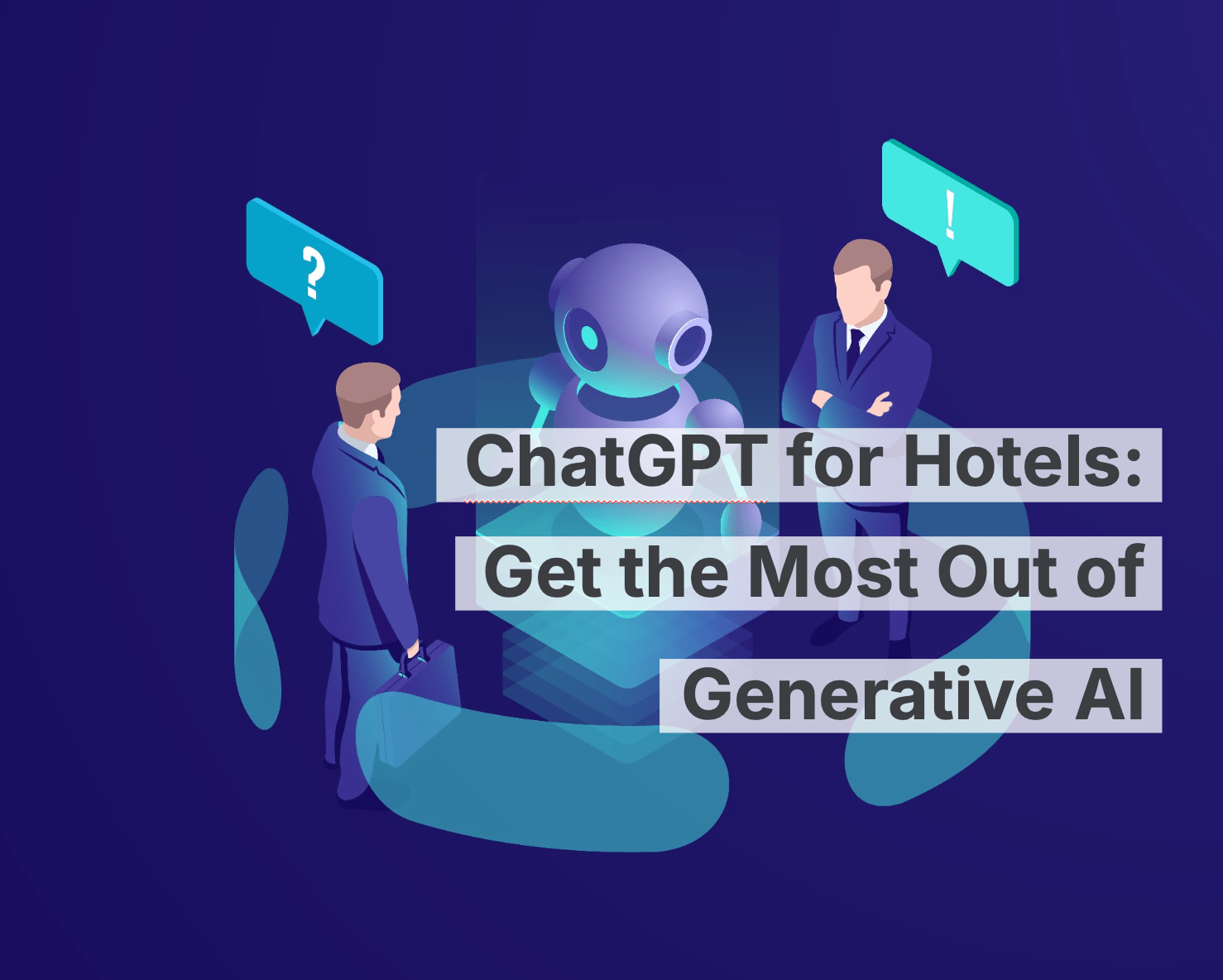

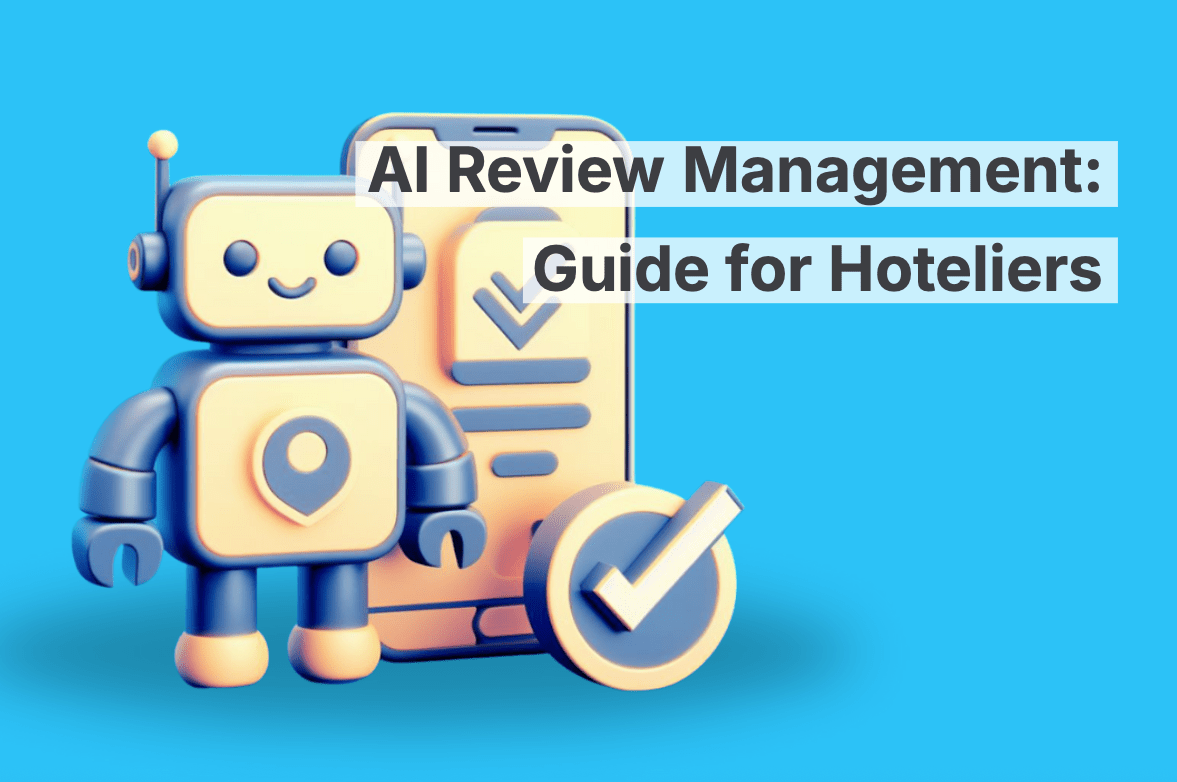








-min.avif)
